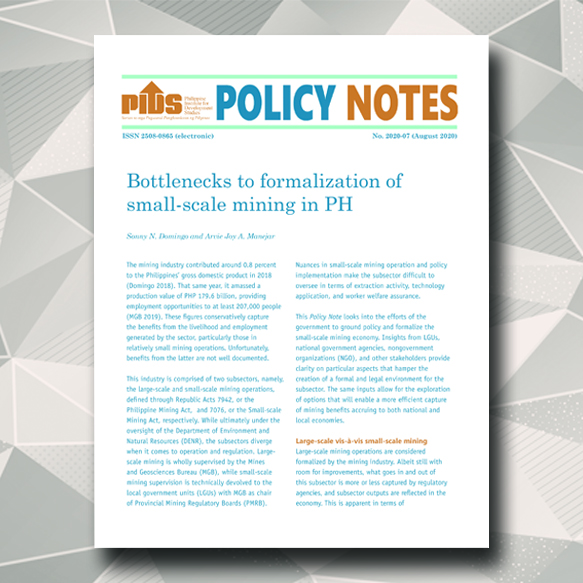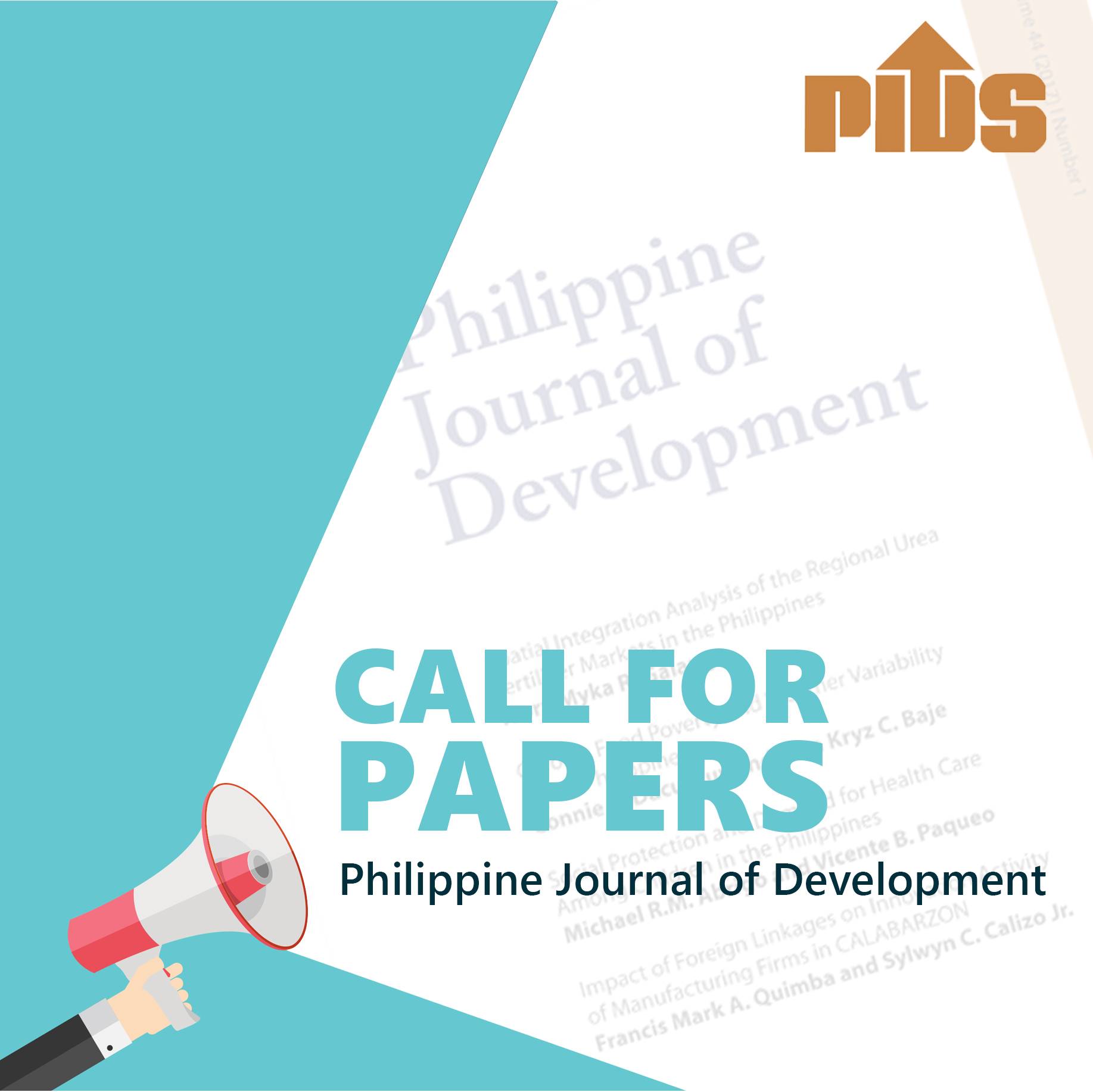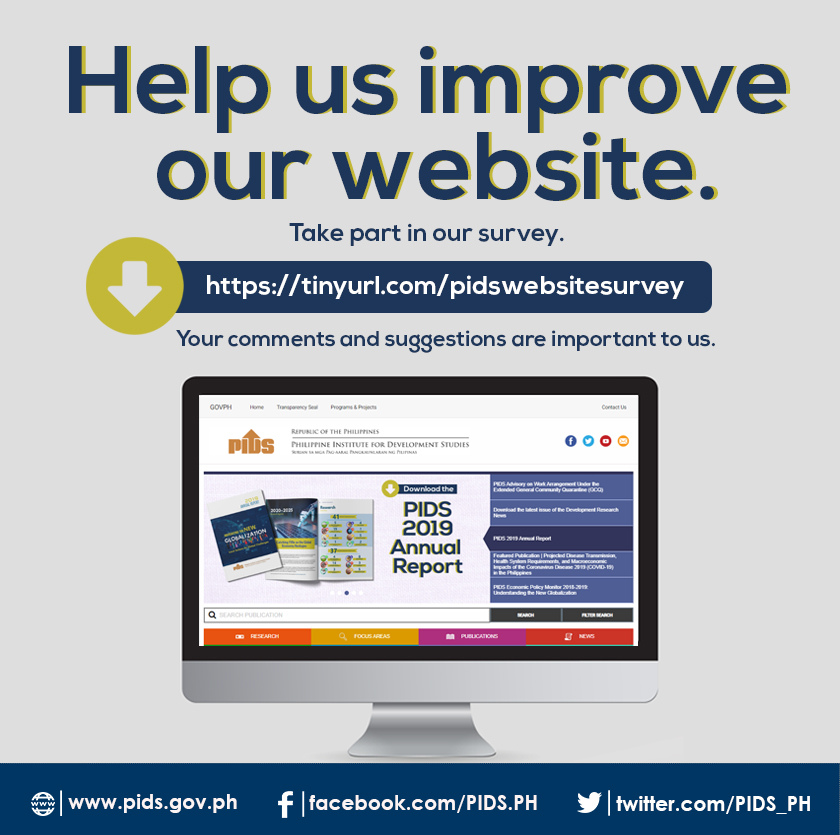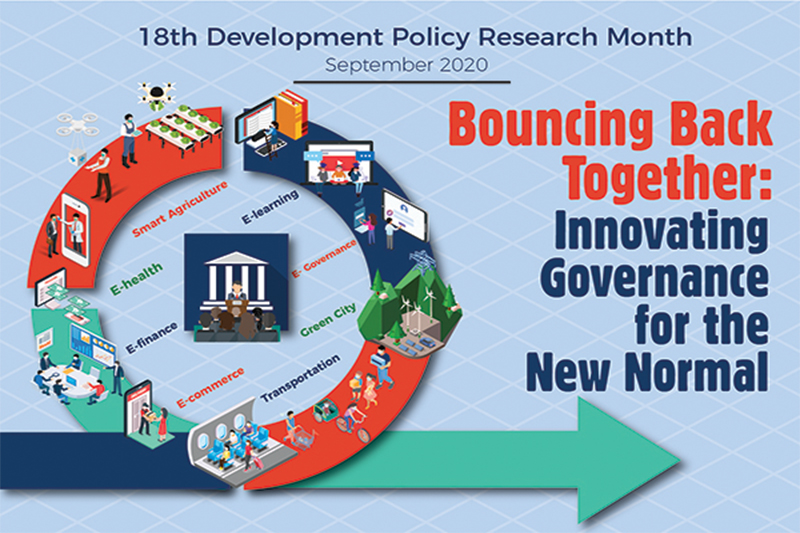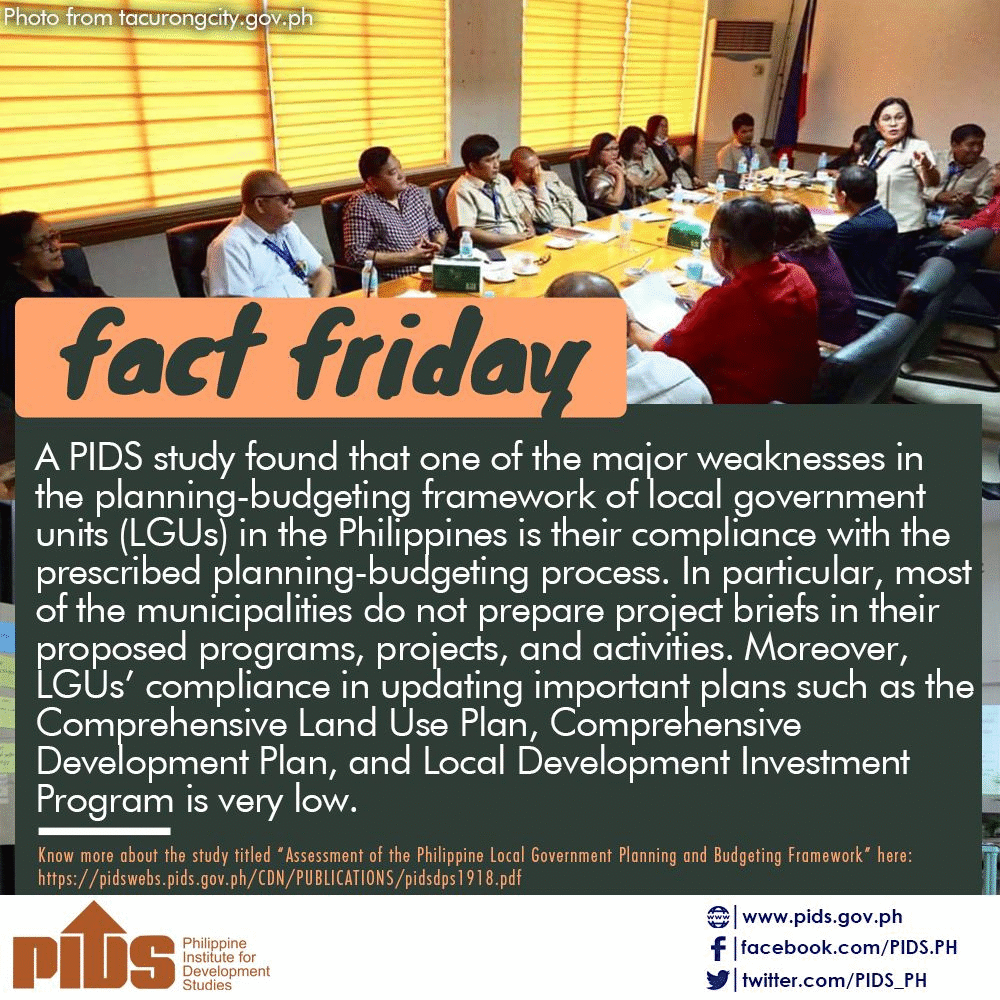Having trouble reading this email? View it in your browser. |
|||||
 |
|||||
|
|||||
POLICY NOTE
This Policy Note assesses the efforts of the government to formalize small-scale mining economy. Using the insights from national government agencies, nongovernment organizations, and other stakeholders, it notes several issues hindering the formalization of this sector. Among these issues is the absence of monitoring and profiling mechanisms in the sector, resulting in the lack of basic information, such as the profile of workers. It also reveals that the current definition of small-scale mining is unfit with the current operations. There has also been some confusion as to the kind of clearances required by the government. To address these issues, this study recommends the holding of rigorous and comprehensive documentation of the small-scale mining subsector. It also urges the government to clarify the definition of the law, as well as mainstream the documentary requirements needed for government clearance, such as the free, prior, and informed consent and the environmental compliance certificate. Click here to download the policy note. This study provides an updated profile of the poor in the Philippines, as well as various segments of the income distribution based on the 2018 Family Income and Expenditure Survey. It also follows the typology of the low-, middle-, and high-income classes proposed in previous research reports and simulate the likely effects of contractions in per capita income on poverty and the entire income distribution amid the COVID-19 pandemic. Due to the unavailability of required data to estimate the impact of COVID-19 on poverty and income distribution, simulation scenarios and assumptions were used. Among others, the study finds that in a medium case scenario of declines of incomes by 10 percent across the entire income distribution, the number of poor Filipinos can increase by 5.5 million, but with the emergency financial subsidies (i.e., the social amelioration program and the small business wage subsidy in place) that targeted 90 percent of households, the worsening of poverty conditions has been managed so that only 1.5 million would fall into poverty, i.e., 4 million less than expected number of Filipinos falling into poverty. Click here to download the discussion paper. |
September 1, 2020,
9:00–11:30AM
|
||||
 Gov't may "unfund" some of its programs to afford the increase in LGUs' IRA--PIDS study Gov't may "unfund" some of its programs to afford the increase in LGUs' IRA--PIDS studyThe government may cut back on or “unfund” some of the programs, activities and projects (PAPs) in the budgets of some national government agencies (NGAs) to allow it to allocate funds for the increase in the internal revenue allotment (IRA) of local government units (LGUs). This is one of the options recommended by a study published by the Philippine Institute for Development Studies (PIDS) following the decision of the Supreme Court to expand the source of IRA to include other national taxes such as customs duties. Based on the estimates of the Development Budget Coordinating Committee (DBCC), the IRA in 2022 is projected to increase “from PHP 847.4 billion (if the old way of computing the IRA were followed) to PHP 1,102.7 billion or an increment of PHP 225.3 billion”. READ MORE
The theme highlights the importance of innovating governance across all sectors of society to steer the country toward the path of renewed growth and dynamism. READ MORE |
|||||
Join the 18th DPRM celebration! 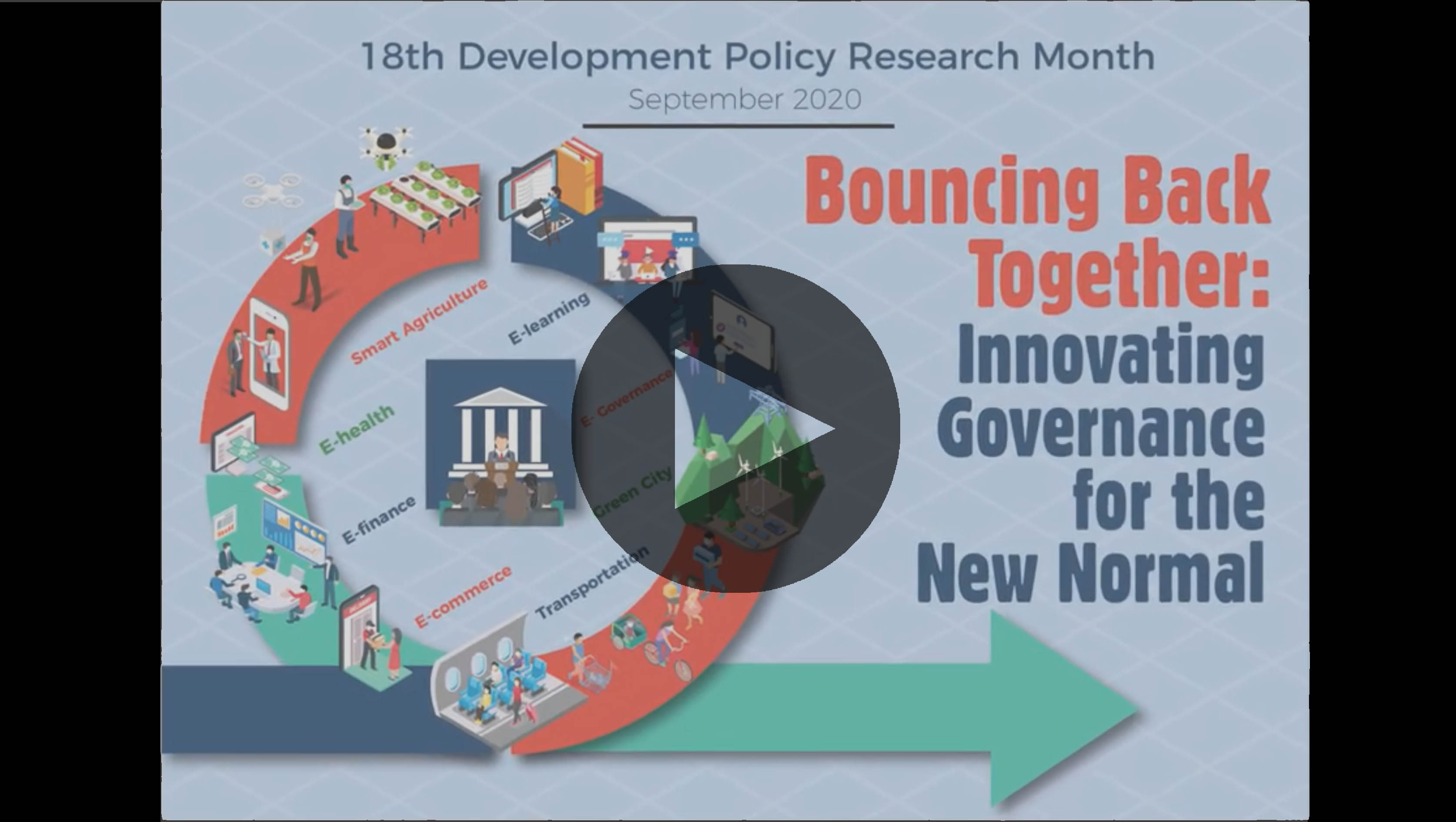 September 1 marks the start of the Development Policy Research Month (DPRM). Pursuant to Malacañang Proclamation 247 signed in 2002, the DPRM aims to promote nationwide awareness of the importance of policy research in crafting evidence-based policies, plans, and programs. September 1 marks the start of the Development Policy Research Month (DPRM). Pursuant to Malacañang Proclamation 247 signed in 2002, the DPRM aims to promote nationwide awareness of the importance of policy research in crafting evidence-based policies, plans, and programs.Our theme for this year is "Bouncing Back Together: Innovating Governance for the New Normal". Watch the video for more details about the DPRM and this year's theme. Visit the DPRM website and our Facebook and Twitter pages for information on the series of virtual public fora that will be held this September to celebrate the DPRM. #DPRM2020InnovateGovernance
#DPRM2020BounceBackTogether
|
|||||
FACT FRIDAY Every Friday, PIDS releases nuggets of research results culled from different PIDS studies. Here are the latest #PIDSFactFriday issues. |
|||||
Need help? Have feedback? Feel free to contact us. |
|||||
